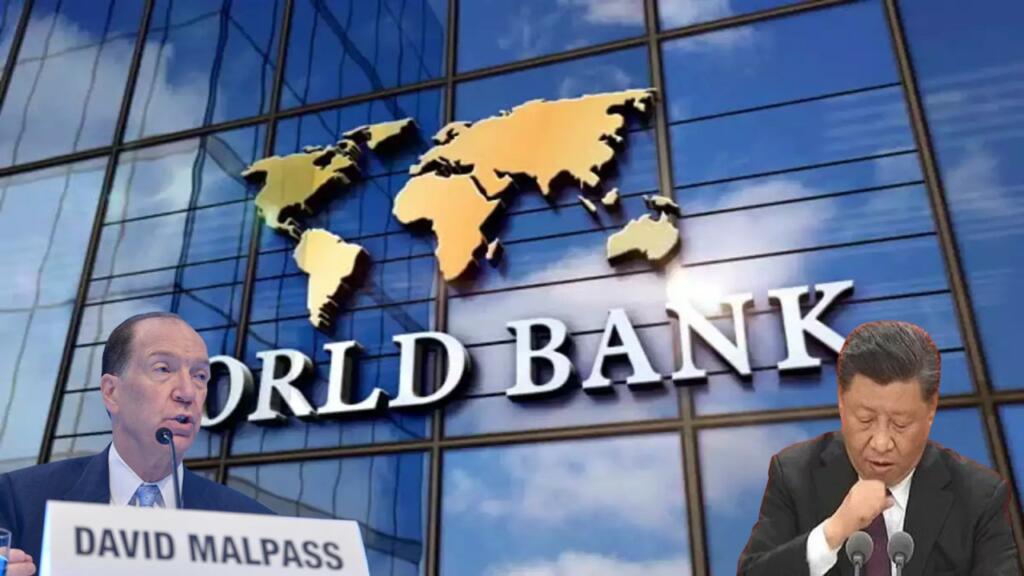Chinese debt trap: Let me start with an undeniable fact known to a lot of Indians for a long time. For years, many so-called reputable organizations leased themselves out to be used as shameless tools in the geopolitical circus. Let me elaborate on this point. First, the US misused institutions like the World Bank, IMF, and WTO, among others. But the abject surrender of the WHO under the sold-out Chinese stooge Tedros Adhanom Ghebreyesus highlighted that China too has started doing the same abomination.
Now, the institutions created for global welfare are being held hostage by China’s ulterior motives. Several developments and few recent remarks suggest that some multilateral institutions have finally come to terms with the fact that some of their members have compromised the integrity of these organizations for the sake of Chinese interests.
Read More: Explained in numbers: The extrusive death of China’s BRI is here
World Bank reiterates the threat of Chinese debt trap
Warren Buffet once said, that don’t put all your eggs in one bucket. Several tiny countries throughout the world, particularly in Africa and Asia, imagined their economic progress and infrastructural development solely on the basis of Chinese loans. Well, these financially unviable projects were doomed to fail to begin with. Now, these nations are facing the real threat of losing their sovereign rights over their resources and being dictated to follow Chinese scripts.
Highlighting the genuine concerns of these countries of the Global South, India has been providing support in every manner possible. This was visible in India’s G-20 Presidency, where India spearheaded the grouping to develop a consensus for extending haircut, debt restructuring and moratorium. Now, these debt management and awareness plans are paying off as more and more voices are coming out to support the cause of countries in the Global South.
Evidently, World Bank President David Malpass has recently raised red flags about China’s loans extended to African countries.
Several media reports highlight that the World Bank is now worried about Chinese loans given to economically vulnerable nations. It adds that World Bank President David Malpass has conveyed his concerns about some of the loans China has given to developing economies in Africa.
The threat of opaque Chinese debt trap
Going further, he has demanded that the terms and conditions of these Chinese debts have to be “more transparent”. These cautious remarks come against the backdrop of the fact that countries including Ghana and Zambia are struggling to repay their debts to Beijing.
In its defence, the CCP has used the same old logic and claimed innocence. As China stated that its loans follow international rules of lending.
Read More: China’s push in MENA is a tumour which is growing into cancer for India
There is nothing wrong with taking loans or borrowing money from other nations or multilateral financial institutions. But the rate of interest and conditions attached to these loans matter. Several of these developing countries borrowed money from China, which has high interest rates and undisclosed conditions imposed by China on these nations.
But, because a large portion of that borrowing is done in foreign currencies like US dollars or euros, sharp increases in interest rates in the US and other major countries over the last year are making loan repayments more expensive.
The severity of the problem increases for developing economies as they struggle to pool the extra money required as the relative value of their own currency falls as compared to US dollars.
Furthermore, David Malpass added that this is a “double whammy and means that (economic) growth is going to be slower”.
In fact, the US Vice President recently visited three African countries. One of the main reasons for this visit is to counter the problem of the Chinese debt trap and its consequences. Additionally, the visit comes with big commitments of financial support to Tanzania and Ghana.
The US is currently engaged in a fierce rivalry with China for increasing influence on the African continent. The reason for this growing hostility between the US and China is the abundance of natural resources, including metals such as nickel, crucial for the batteries needed for technology such as electric cars.
According to a recent study by the Kiel Institute for the World Economy, 22 nations received bailout loans from China worth $185 billion (£150 billion) between 2016 and 2021.
Read More: ‘Poof…. and it vanishes,’ India tramples upon China’s BRI
How does China backstab the debtor?
On the other hand, Beijing played diplomatically when it came to its humanitarian responsibility as a lender. This was evident during IMF bailout assurances for Sri Lanka. In a first, India gave the assurance. Followed by which China too gave assurance but it was found incompetent to the demands of IMF. This is the backstabbing reality of Chinese debts.
Similar is the BRI, through which the loans are distributed under secretly exploitative conditions. Through these loans, Beijing exploits the resources and raw materials of the host country to produce low-cost products. And with ‘Belt and Road’ connectivity, they trap their market with those cheap products.
It would not be wrong to say that China’s domestic conditions indicate economic turmoil. The only aspects that have sustained the Chinese economy are loans and cheap products, which are interconnected to each other. This is actually the backbone of the Chinese economy. Its policy can be called Neo-Colonialism. David Malpass’ acknowledgement of Chinese debt trap may prove to be optimistic for African countries.
Support TFI:
Support us to strengthen the ‘Right’ ideology of cultural nationalism by purchasing the best quality garments from TFI-STORE.COM
